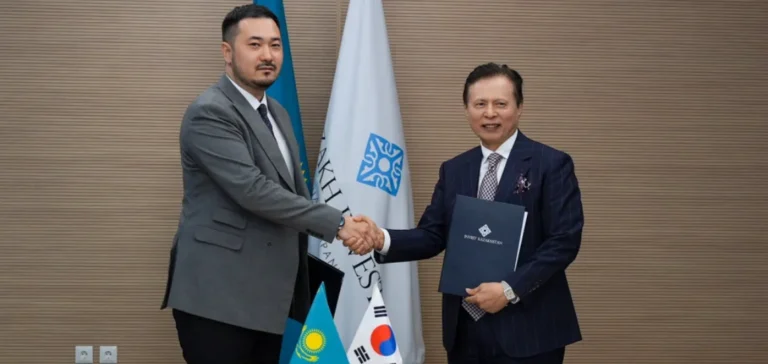South Korean engineering company YPP, in collaboration with Kazakh Invest, has signed an agreement to develop a green hydrogen production project in Kazakhstan. The major initiative, the Green Energy Complex, aims to establish a full-cycle production of green hydrogen and ammonia using renewable energy sources (RES). The total investment could reach up to $3.1 billion, depending on the project model and local conditions.
Construction of renewable power plants and production facilities
The project includes the construction of wind and solar power plants with a total capacity of up to 2 GW. Additionally, electrolysis and ammonia production units will be installed. The goal is to produce up to 75,000 tonnes of green hydrogen, part of which will be converted into 310,000 tonnes of green ammonia annually. A portion of the production will be used domestically, while the majority will be exported.
Development of local infrastructure and energy applications
The works will also involve the development of local infrastructure, including energy storage systems, water supply networks, and logistical solutions. The project will also explore hydrogen applications in the energy sector, particularly through the modernization of combined heat and power (CHP) plants in the Almaty region.
Azamat Kozhanov, Deputy Chairman of the Management Board of Kazakh Invest, emphasized that this project aligns perfectly with Kazakhstan’s strategic priorities and its ambitions in the hydrogen energy sector. He stated, “Kazakhstan has enormous potential for renewable energy. We are seeing strong and sustained interest from international companies in implementing green energy and hydrogen projects.”
Strategic partnership for hydrogen development
John M. Bek, Chairman of the Board of YPP, highlighted Kazakhstan’s unique natural conditions and its investment climate favorable for the development of hydrogen energy. “Kazakhstan is a strategic partner for us, and this project will combine Korea’s best technologies with global approaches to sustainable production,” he added.
This agreement paves the way for further elaboration of the investment model and the conclusion of a formal investment agreement. It also envisages the formation of partnerships with key organizations, including potential offtakers such as South Korea’s Samsung C&T.






















